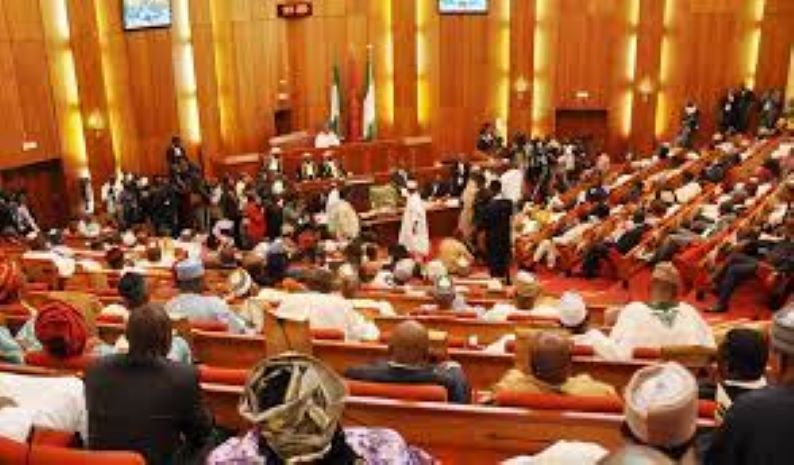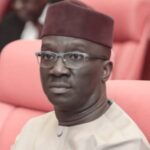By Abbanobi-Eku Onyekachi
The Civil Society Legislative Advocacy Centre (CISLAC) and other Civil Liberty Organizations (CLOs) have tasked the senate to stop those in authority from borrowing monies without accounting for them and appropriating public funds and revenues to the detriment of Nigerians.
Addressing journalists on Friday at the Senate, on the theme: Nigeria’s Economic Challenges and Public Debt Management, the Executive Director of CISLAC, Auwal Ibrahim Musa notes thus: “Nigeria is in dire revenue situation as it appears to be short of ideas on the approach to fiscal management. The trajectory of revenue from the Federal Government (FG) shows a continuous decline in the past five years with a 45% revenue shortfall in 2018, a 45% shortfall in 2019, 31% in 2020 and 45%, 41% and 50% in 2021, 2022 and 2023, respectively.
“These have created budget deficits and has grown our external debt by 1,333% from the level it was after the Paris Debt buy-back-deal in 2005/06. In June 2023, Nigeria’s debt was N87.9trillion ($114.3billion) and will climb to N107.38 trillion in 2024, following recent approvals by the National Assembly. Worrisomely, 37% of Nigeria’s external debt is owed to private creditors whose loans attract between 6-9% and shorter repayment period in comparison to loans from multilateral and bilateral sources with interest rates of between 1-3% and longer repayment period of 10-30years.
“The result is that debt servicing will cost 98% of our budget, and the government will spend six times more on servicing debts than on projects in 2024. This unsustainable level of public debt highlights the need for a reassessment of government spending and revenue generation. As advocates of economic justice, the Tax Justice and Governance Platform (TJGP), with subnational platforms across eighteen (18) states in the country and a National Secretariat coordinated by CISLAC and steered by ActionAid, Christian Aid, Centre for Democracy and Development, (CDD) International Budget Partnership (IBP), and the Nigeria Labour Congress (NLC) and Oxfam wish to lend its voice once again to these growing concerns.
“The escalating debt burden has profound implications for the well-being of Nigerian citizens, and failure to act quickly could result in an additional 23 million Nigerians living in poverty and 80 million working-age citizens without a full-time job by 2030. These trends underscore the need for the National Assembly to urgently commit to reforms and balanced resource allocation, thereby paving the way for significant investment in critical sectors that directly impact the lives of Nigerians. In response to these multifaceted challenges, the National Assembly should acknowledge the importance of exercising its mandate towards steering the nation back on the path of economic stability and prosperity.”
To address the alleged abnormalities in the system, they therefore urges the National Assembly to urgently: investigate the spending of loans received by the FG in the past and present administrations, including but not limited to the $3.4 billion loan obtained from the International Monetary Fund (IMF) as reported in the 2020 annual report by the Auditor-General of the Federation; revise legal and institutional frameworks related to debt management, emphasizing accountability.
Added were to among others: redefine the purpose of incurring debts, improve the macroeconomic framework, develop infrastructure, and build strategic human capital; stop borrowing for recurrent expenditure (personnel and overheads) and dilatory capital expenditure that adds no value to economic growth, wealth creation and development and; strengthen debt sustainability assessments through public debt review mechanisms.



